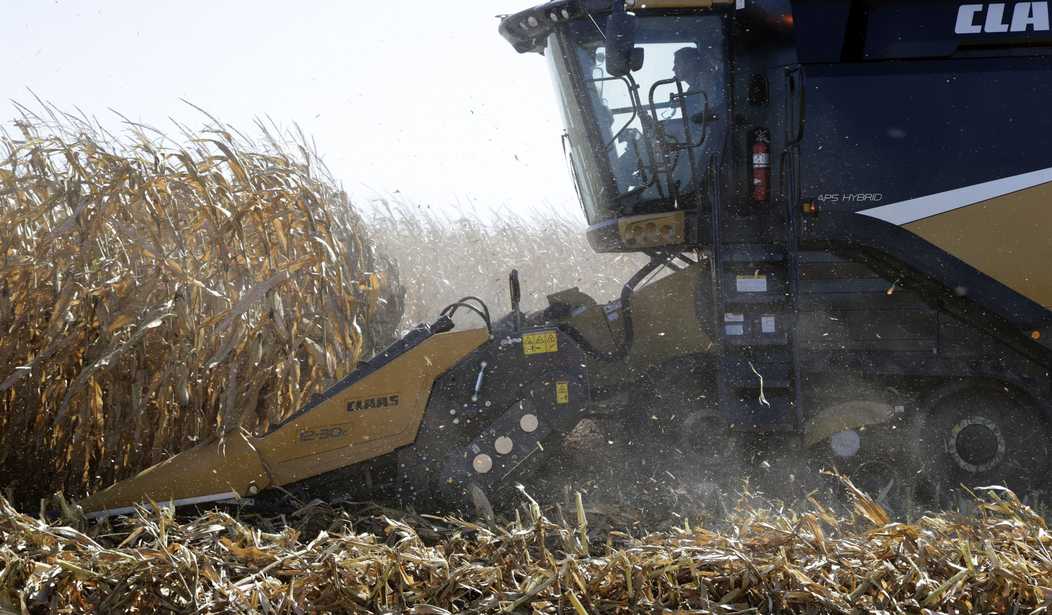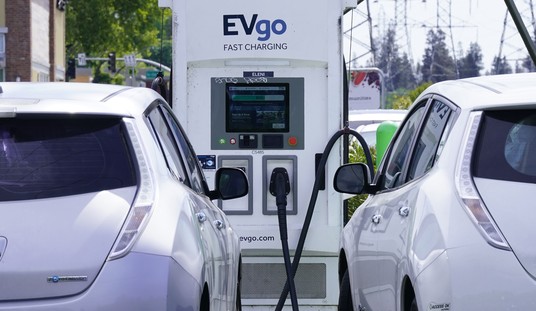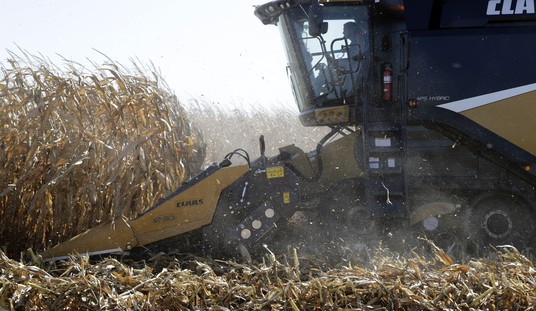Not all that long ago, almost everyone you ran across was either involved in agriculture or knew someone who was. The American population was invested in agriculture, we had a pretty good idea where our food came from and what was involved in producing it. Take my own family; both of my grandfathers farmed for at least part of their lives, and my father farmed for almost 20 years.
But now? Nobody in my family works in the production of food in any way. The closest I can claim to a relative who works in food at all is a niece who is a dietitian at the Mayo Clinic. Most American families are in a similar position. As of this writing, a little over 10 percent of Americans work in agriculture or agriculture-supporting industries, according to the United States Department of Agriculture.
With that being the case, you can imagine the funny ideas some people have developed about food and where it comes from. In a piece published Saturday, the Pacific Research Institute's Pam Lewison, who is described on the PRI's website as a "...farmer, Pacific Research Institute fellow, and director of the Washington Policy Center’s Initiative on Agriculture," has some interesting data.
Most Americans do not grow their own food. This disconnect between the farm gate, and the dinner plate has long been a concern for “ag-vocates” who’ve noted more people are unable to connect directly with reasons why agriculture is important.
The recent announcement from Lays Potato Chips that 42 percent of consumers did not know that chips were made of real potatoes should maybe not surprise anyone. Yet, it is a shocking statistic, nevertheless. The data comes from a survey conducted by PepsiCo, Lays’ parent company, as part of a consumer and brand study.
I suppose this shouldn't be surprising, given the increasing urbanization of society, that 42 percent of consumers don't know that potato chips are made from, you know, potatoes. It would be roundly tempting to ask this 42 percent to describe precisely what they think potato chips are made from, but that may be a rabbit hole best not explored.
Here's the thing: Where this lack of understanding is at its worst is in the case of "ethical vegans." I don't mean run-of-the-mill vegetarians or what I call "dietary vegans," who eat a plant-based diet for reasons of their own and who aren't pushing it on other people. No, the "ethical vegans" are the ones that are the butt of jokes like "How do you know there is a vegan at your party? He'll tell you." These people can be insufferable, and their knowledge of where actual food comes from is usually pretty sparse.
Some years ago, while researching and writing on the animal rights movement, I stumbled across a Usenet post on talk.politics.animals (Remember Usenet? I miss Usenet.) wanting to know why hunters went out and killed animals for food, when one could simply go to the grocery store and buy meat, and then "no animals would have to die." I suspect this person was a Loki troll, a troll who deliberately argues the opposite side of any issue with nonsensical arguments, to make the other side look bad.
Not that the animal rights crowd needs any help there.
Which leads me to the other case that Pam Lewison brings up as an example in the PRI piece:
If you’re not sure, check out the “strawberry milk vegan.”
There are a couple of things to note about this TikTok post ahead of time. First, there is no context for this video. That makes it difficult to know if it’s satire or someone who truly doesn’t understand how milk works. Second, it has been the butt of numerous jokes regarding the silliness of veganism since it was first unearthed several years ago. Finally, maybe the container was a mistaken grab. From the post, it appears to be a pre-made Strawberry Nesquik, but perhaps it was meant to be a strawberry plant-based milk alternative brand like Califia.
For arguments’ sake, if the post is sincere, it tells a story akin to the potato chip data.
Yup. Someone thought strawberry milk came from strawberries.
Read More: Inside the Smug, Secret Minds of Vegan Activists
New 'Planetary Health Diet' Isn't Healthy and Won't Save the Planet
Again, this person could be a Loki troll. It could just be a bad joke. Who knows? But the underlying problem is there. The animal-rights "ethical vegan" demonstrates some serious cognitive dissonance in this matter, insisting their diets cause no animal deaths at all, engaging in what an old friend of mine calls the "irrational search for micrograms of animal parts" to try to erase those from their intake, while ignoring the massive cost in animal life in monoculture crop farming. But that's an argument for another time; what is more concerning is the distance that regular people, people who are not animal rights nuts, have moved away from understanding something so elementary as where their food comes from.
Education could help, but our schools are already filled with all manner of hooraw, to the point where they aren't doing a very good job of teaching things like reading, writing, math, and history. Communication? How would that work? Shouting into the hurricane of social media won't have much effect.
Sadly, this will probably remain what it is, an inevitable consequence of our increasingly urbanized population. If you can, take your kids or grandkids to a farm. Let them see how it all works, how row-crops like corn and soybeans are raised, harvested, and transported. Let them see cattle grazing, let them see how dairies work. They don't have to see the slaughterhouses or meat-packing facilities to gain, at least, some understanding of how agriculture works. And it may have the added benefit of having young people see farmers not as some distant, shadowy figures who somehow produce food, but as people, working in a tough, demanding business, and putting food on our plates.
Oh, and tell them that potato chips are made from potatoes. That's a good place to start.














